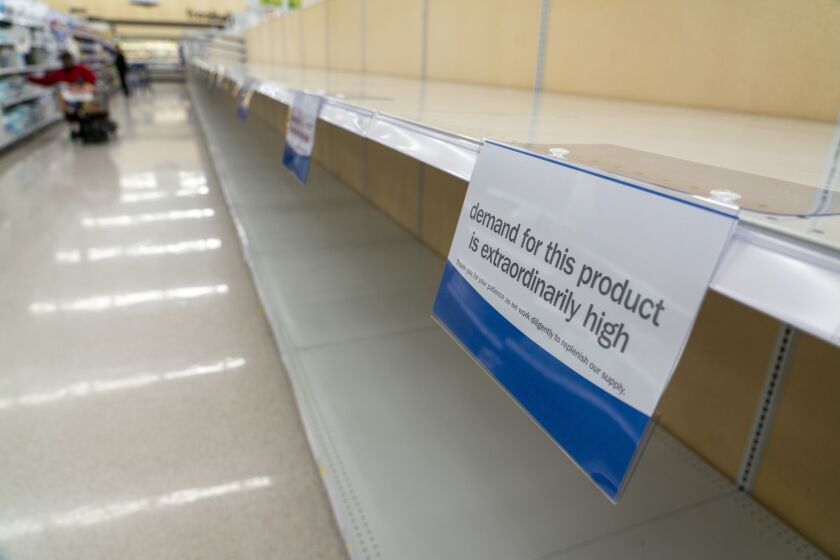It’s a rare occurrence for a business to receive a huge business spike while also shutting parts of the operation, but that’s where the coronavirus has landed Farmstead.
Farmstead describes itself as a digital micro-grocer, focusing its no-store online delivery business in the San Francisco area. Even before the Bay Area went into lockdown, the company saw orders jump by up to 60% each day over the prior week, numbers that are similar across grocery apps, which are struggling to keep up with demand.
Farmstead, which uses Stripe, is considering asking customers to prepay to provide more flexibility in a troubled time, as well as deal with a higher volume.
It’s a rare example of good news, but even here there are challenges. “We have closed our offices and only have our warehouse open with limited access for just the people who work there,” said Pradeep Elankumaram, co-founder and CEO of Farmstead.

As the virus threatens an economic downturn, Farmstead plans to hire about 60 people by the middle of next week, but is managing that influx with health restrictions. “The drivers cannot go into the warehouse. We've had to make a lot of adjustments to stay safe," Elankumaram said.
The combination of the economic crisis, which has closed other businesses, and the sudden consumer move to online grocers, has led Farmstead to consider alternate payment methods, such as a version of point of sale credit.
“We would put in a system that uses a gift card for credit purchases,” Elankumaram said, adding that feature is still under development.
Online grocers are part of the broader movement toward mobile order and payment, and are often early adopters given their store-less model.
With coronavirus taking a significant chunk out of physical retail and services, the use of call centers and phone interaction with customers becomes even more important.
The nationwide lockdown in Italy has necessitated changes for Pellegrino personally, and for his business. The two worlds often intersect.
Cash use will suffer because of this outbreak, and there are factors other than germs contributing to this trend. A growing work-from-home workforce will funnel more shoppers into digital channels, including ones they may have never tried before.
Walmart and Amazon have both made recent moves to enhance grocery delivery. Walmart, for example, is adding its online grocery app to its main mobile app. And Amazon has expedited Prime delivery for Whole Foods customers.
But the coronavirus threatens to overwhelm even the largest apps. There have been challenges in recent days because of the business spike. Amazon Fresh and Whole Foods have suffered capacity shortages and technology glitches.
As mobile orders have spiked, FreshDirect — which covers mostly the New York area — has received complaints from consumers who are unable to schedule delivery times, according to the New York Post. FreshDirect recently expanded its order technology to include connected refrigerators and collaborations with Mastercard and Samsung. The grocer did not return a request for comment.
Overall, supermarket apps have seen dramatic growth in recent days. Average downloads for Sunday (March 15) spoked 218% for Instacart, 160% for Walmart Grocery and 124% for Shipt, according to Apptopia, tracking figures that predated the more severe lockdown announcements of this week.
"We usually try to [fulfill] orders in about two hours, but we've had delays of up to a couple of days now," Elankumaram said.
As the virus spreads, parts of the Bay Area are under a “shelter in place” order, covering a region of about 7 million people. As of Tuesday, it’s the most sweeping measure to suppress the virus’ growth, ordering people to stay at home except for health care, grocery stores, gas stations banks and food delivery services.
Other large cities such as New York have issued less restrictive measures, though in most cases supermarkets are the main businesses that are open.
The relatively sudden closings have scrambled strategies for a wide swath of businesses, often accelerating digital payments and mobile ordering and delivery to avoid cash handling and to comply with orders to close eat-in dining.
The emergency is expediting moves to contactless payments and voice-assisted shopping, two innovations that have become more necessary than experimental.
“The rapidly evolving crisis is forcing many companies to rethink their strategies, as they think carefully about the impact on the broader community,” said Zil Bareisis, a senior analyst at Celent. “At a time when the spotlight is on cash as the potential means to spread the virus, encouraging people to use contactless and other electronic payments makes sense.”







